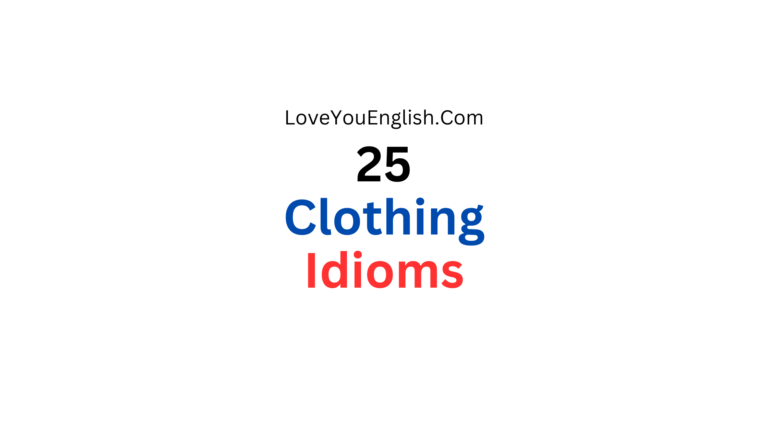C1 and C2 English Idioms to Use
Learning English at an advanced level, such as C1 and C2, involves mastering not only grammar and vocabulary but also the richness of idioms. Idioms are expressions that don’t always make sense literally, but are commonly understood by native speakers. Using idioms can make your English sound more natural and fluent, especially in casual conversations and professional settings.
In this post, I’ll teach you some useful idioms at the C1 and C2 levels that you can start using today. These idioms will help you sound more like a native speaker and add variety to your speech.
What are C1 and C2 English Idioms?
Before we dive into examples, let’s briefly discuss what C1 and C2 mean in terms of language proficiency. According to the Common European Framework of Reference for Languages (CEFR), C1 and C2 are the highest levels of language proficiency.
- C1: This level means you can use English fluently and effectively in social, academic, and professional settings. You can understand complex texts and express yourself clearly, even in unfamiliar situations.
- C2: This is the mastery level of English. At this stage, you can easily understand almost everything you read and hear. You can express yourself spontaneously and precisely, even on complex topics.
Both C1 and C2 learners are expected to know a wide range of idioms and be able to use them appropriately. Let’s take a look at some of the idioms that can help you communicate like a true English expert.
1. Bite the bullet (C1)
Meaning: To do something painful or unpleasant that you have been avoiding.
- Example: I didn’t want to go to the dentist, but I had to bite the bullet and get the tooth pulled out.
2. Break the ice (C1)
Meaning: To make people feel more comfortable in a social situation, often by starting a conversation.
3. Burn the midnight oil (C1)
Meaning: To work late into the night, especially to finish something important.
4. On the ball (C1)
Meaning: To be quick to understand and react to things; to be alert and efficient.
5. Put your foot in your mouth (C1)
Meaning: To say something embarrassing or inappropriate, often by accident.
- Example: I accidentally put my foot in my mouth when I commented on her dress, not knowing she had made it herself.
6. The ball is in your court (C1)
Meaning: It’s now up to you to make the next decision or take action.
7. Cost an arm and a leg (C2)
Meaning: Something that is very expensive.
- Example: Their new house cost them an arm and a leg, but they love it.
8. A blessing in disguise (C2)
Meaning: Something that seems bad at first, but later turns out to be good.
9. Cry over spilled milk (C2)
Meaning: To be upset about something that cannot be changed or undone.
- Example: It’s no use crying over spilled milk. Let’s focus on finding a solution.
10. Hit the nail on the head (C2)
Meaning: To describe exactly what is causing a situation or problem.
- Example: When John suggested a new marketing strategy, he hit the nail on the head.
11. Go the extra mile (C2)
Meaning: To make an extra effort to do something well or to help someone.
12. A dime a dozen (C2)
Meaning: Something very common or easy to find.
13. Throw in the towel (C2)
Meaning: To give up, especially when faced with difficult circumstances.
14. Let the cat out of the bag (C2)
Meaning: To accidentally reveal a secret or surprise.
- Example: I didn’t mean to let the cat out of the bag, but I told her about the surprise party.
15. Take something with a grain of salt (C2)
Meaning: To not fully believe something because it may not be true or accurate.
- Example: You should take what he says with a grain of salt. He tends to exaggerate.
16. Under the weather (C2)
Meaning: To feel ill or unwell.
- Example: I’m feeling a bit under the weather today, so I think I’ll stay home.
17. The early bird catches the worm (C2)
Meaning: People who wake up early or start something early have an advantage.
18. Steal someone’s thunder (C2)
Meaning: To take attention or praise away from someone else’s achievement.
- Example: She stole my thunder by announcing her promotion just before I could share my good news.
19. Don’t cry wolf (C2)
Meaning: To raise a false alarm or exaggerate a problem when there isn’t really an issue.
- Example: Stop crying wolf every time something goes wrong. People will stop believing you.
20. Put all your eggs in one basket (C2)
Meaning: To risk everything on a single opportunity or plan.
Why Use Idioms?
Using idioms correctly can make you sound more natural and fluent in English. Here are a few reasons why learning idioms is important:
- Improves Communication: Idioms are often used in daily conversations, so knowing them will help you understand native speakers better and respond more appropriately.
- Sounds More Natural: When you use idioms, your speech sounds more relaxed and native-like. It makes you seem less like a textbook learner and more like someone who is part of the culture.
- Expresses Emotions and Ideas: Idioms are great for expressing emotions, opinions, and ideas in a way that’s both colorful and interesting. They make your language more engaging.
- Makes Conversations More Fun: Idioms can lighten the mood and add humor to your conversations, which helps make your speech more enjoyable to listen to.
How to Use Idioms Properly
- Understand the Meaning: Don’t use idioms unless you fully understand them. Misusing idioms can confuse your audience or make you sound awkward.
- Consider the Context: Some idioms are best used in informal conversations, while others are more suitable for formal contexts. Always think about the situation before you use one.
- Practice Makes Perfect: The more you practice using idioms, the more comfortable you’ll become. Try incorporating them into your daily speech and writing.
- Don’t Overuse Them: While idioms are great, using too many in a single conversation can make you sound forced or unnatural. Use them sparingly to maintain balance.
Conclusion
Mastering idioms at the C1 and C2 levels of English helps you communicate with confidence and clarity. Whether you want to sound more professional, casual, or humorous, idioms are the key to making your speech more dynamic and engaging.
Start practicing these idioms today, and don’t be afraid to experiment with them in your conversations. With time, you’ll start using them effortlessly, making your English sound more fluent and natural.







